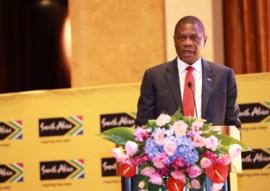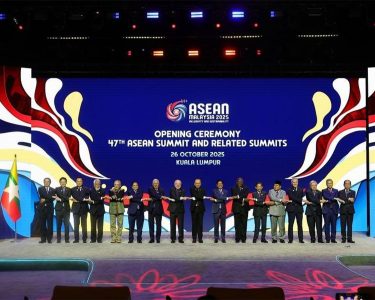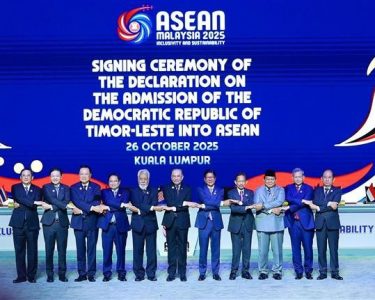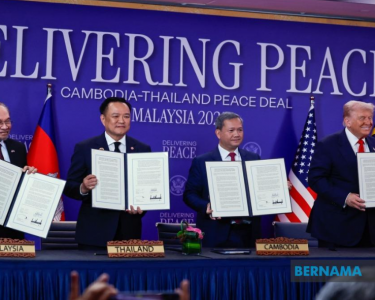
BEIJING, July 19 (NNN-SANEWS) — While the relationship between South Africa and China has mutually benefited both nations through increased trade and investment, Deputy President Paul Mashatile has acknowledged a persistent trade deficit that favours China.
“South Africa’s trade imbalance with China is mostly attributable to the nature of our trading relationship. South Africa mainly exports raw materials and minerals while importing manufactured goods and capital goods from China,” he said.
He noted that South Africa’s trade deficit with China increased from under US$1 billion between 1988 and 2000 to US$9.71 billion by 2023.
“Since FOCAC’s (Forum on China-Africa Cooperation) inception, this trade imbalance has resulted in an accumulated cash outflow of US$114.83 billion from South Africa to China,” he said.
The Deputy President was speaking at the South Africa-China Investment Forum during the China International Supply Chain Expo (CISCE) visit to Beijing on Thursday.
He used the platform to call for urgent action between South Africa and China to ensure a mutually beneficial outcome.
“We need to develop a more coordinated and strategic approach. We need to address challenges such as access to the Chinese market due to factors like tariffs and non-tariff barriers, distance, and competition from other countries.”
This necessitates expanding South Africa’s export portfolio, encouraging value-added exports, and establishing a more balanced trade relationship.
The Deputy President believes the two nations need to expand partnerships in various sectors.
“It is through strategic trade and investment partnerships with China that we can both create a balance and subsequently play a significant role towards South Africa’s economic growth, job creation, and overall development.”
He acknowledged the role of Chinese investment in South Africa, which includes various businesses and key sectors such as banking, manufacturing, and renewable energy.
He stated that South Africa’s mineral exports, agricultural products, and manufactured goods have made significant inroads into the Chinese market.
He also noted that since President Cyril Ramaphosa’s investment mobilisation drive, there has been a steady influx of investment from Chinese companies.
The investment forum offers an additional opportunity to strengthen the investment relationship by facilitating exchanges and sector-specific discussions aimed at exploring the many available investment opportunities.
Mashatile said a major significant investment was made by the Industrial and Commercial Bank of China (ICBC), which purchased a 20% stake in the assets and earnings of Standard Bank for US$5.5 billion.
Meanwhile, he said another major Chinese electronics manufacturer, Hisense, entered the South African market in 1997 and established an industrial park in 2013.
Other Chinese flagship companies such as Zhong Xing Communications (ZTE) and Huawei Technologies are also expanding their presence in South Africa.
Over the last decade, 48 Chinese companies invested in South Africa with a capital investment of over US$11.69 billion.
“As South Africa-China relations continue to deepen, new opportunities emerge for Chinese businesses seeking to enter the South African market, particularly in sectors such as renewable energy, green hydrogen, energy storage, infrastructure and logistics, our special economic zones, pharmaceuticals and medical devices, and the beneficiation of critical minerals, as well as in the digital economy.”
He told delegates that South Africa wants to continue to build on the economic relations that have seen substantial growth since the establishment of diplomatic ties in 1998.
“We value this longstanding relationship because it has been established on a shared vision for a prosperous future.”
Both nations are involved in several multilateral institutions, including the United Nations (UN), the Group of 20 (G20), and BRICS, an intergovernmental organisation made up of ten countries.
South Africa and China utilises these platforms to collaborate on global issues and advocate for the interests of developing countries.
He also took the time to encourage investors who are interested in expanding to the rest of the African continent to capitalise on the African Continental Free Trade Area, which is anticipated to provide access to the African market for companies in the pharmaceutical and medical device sectors and infrastructure. — NNN-SANEWS





